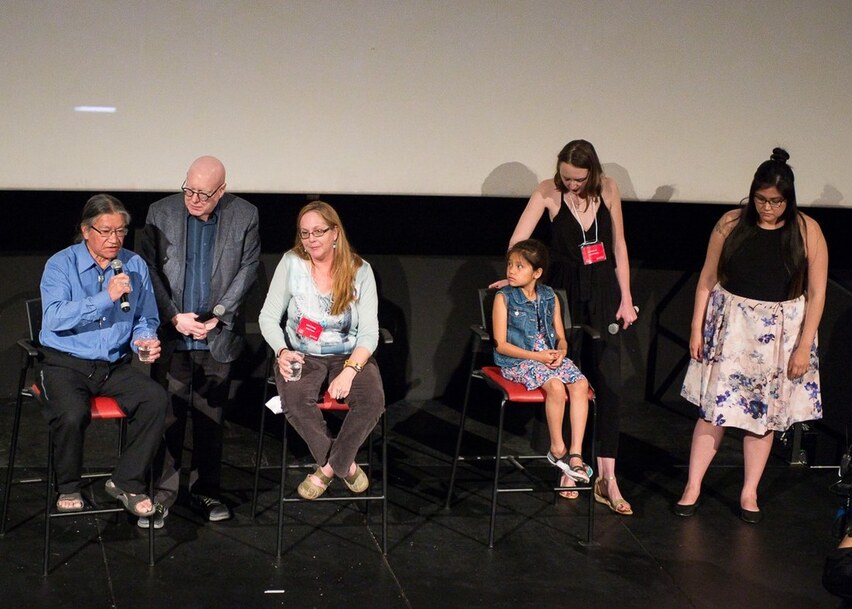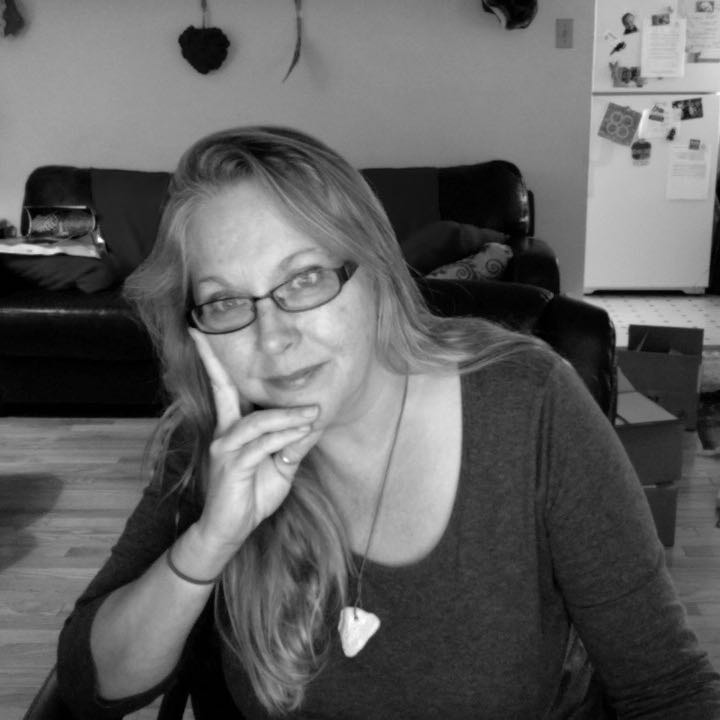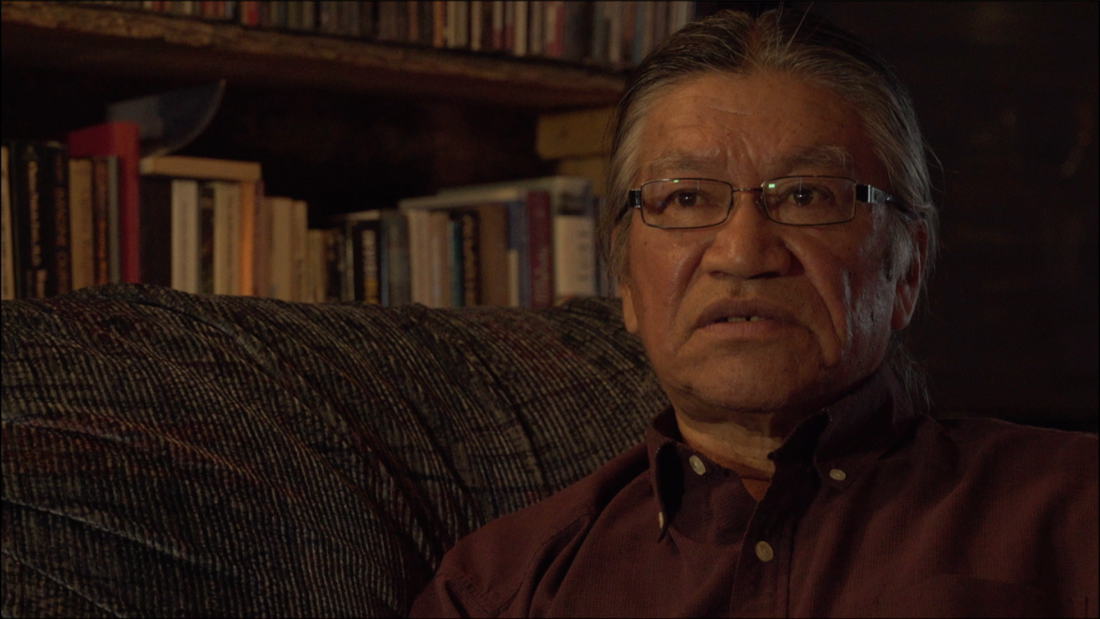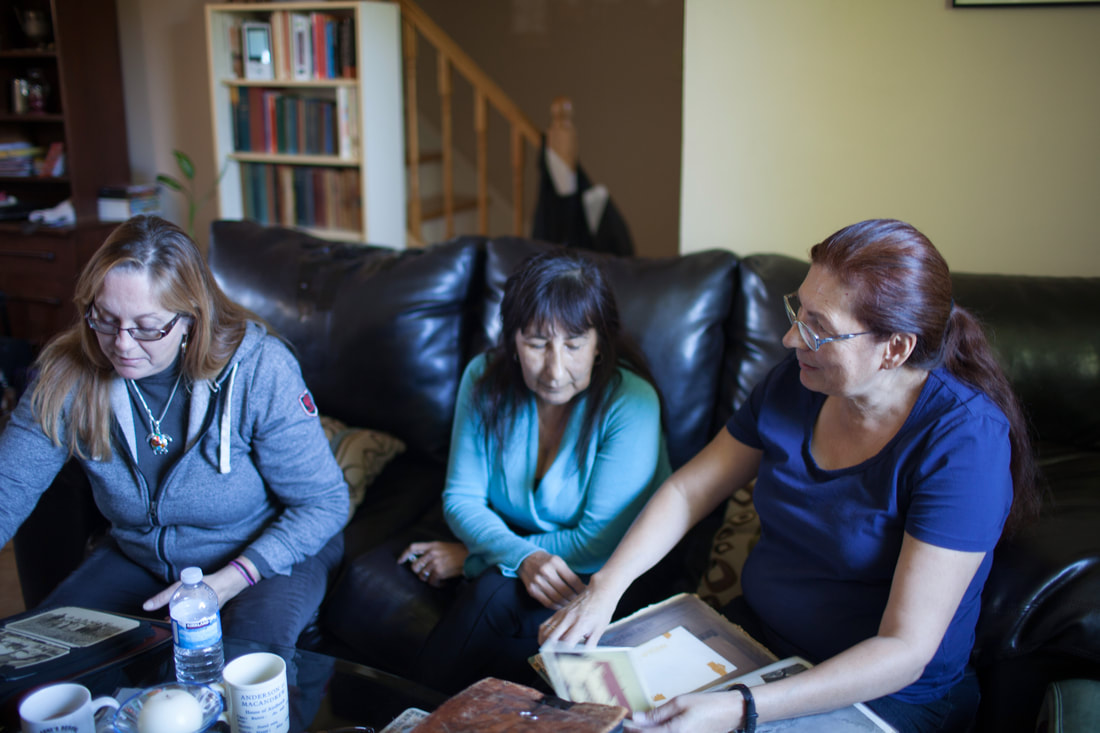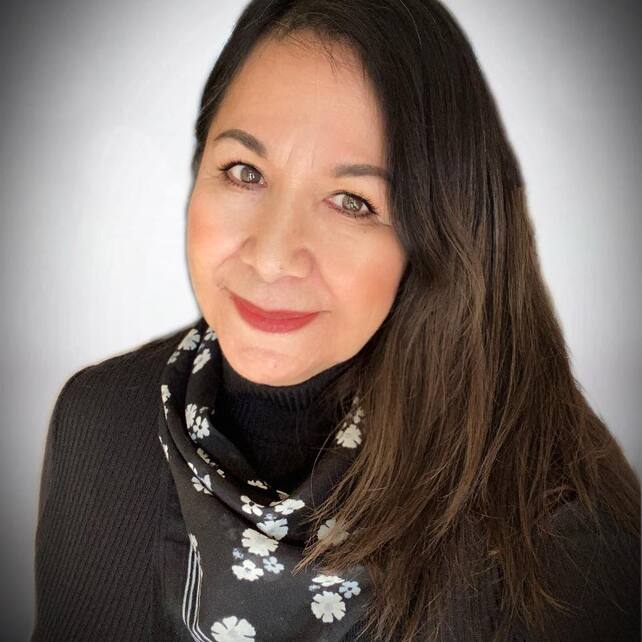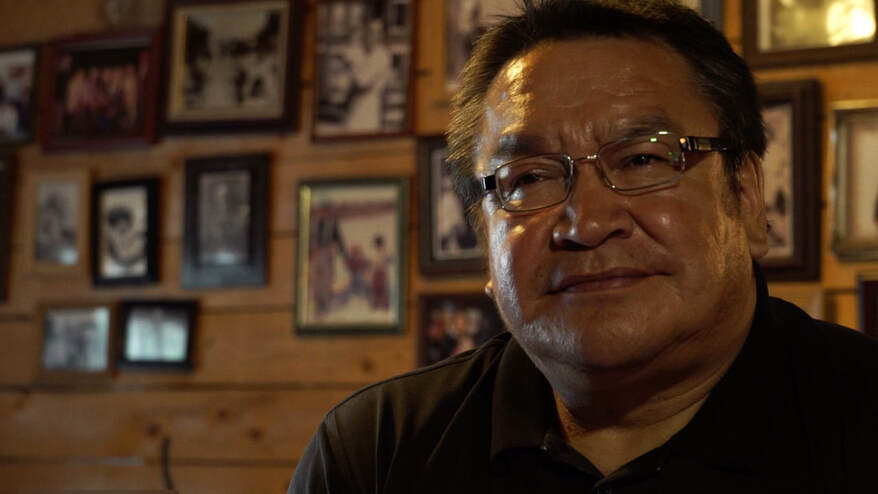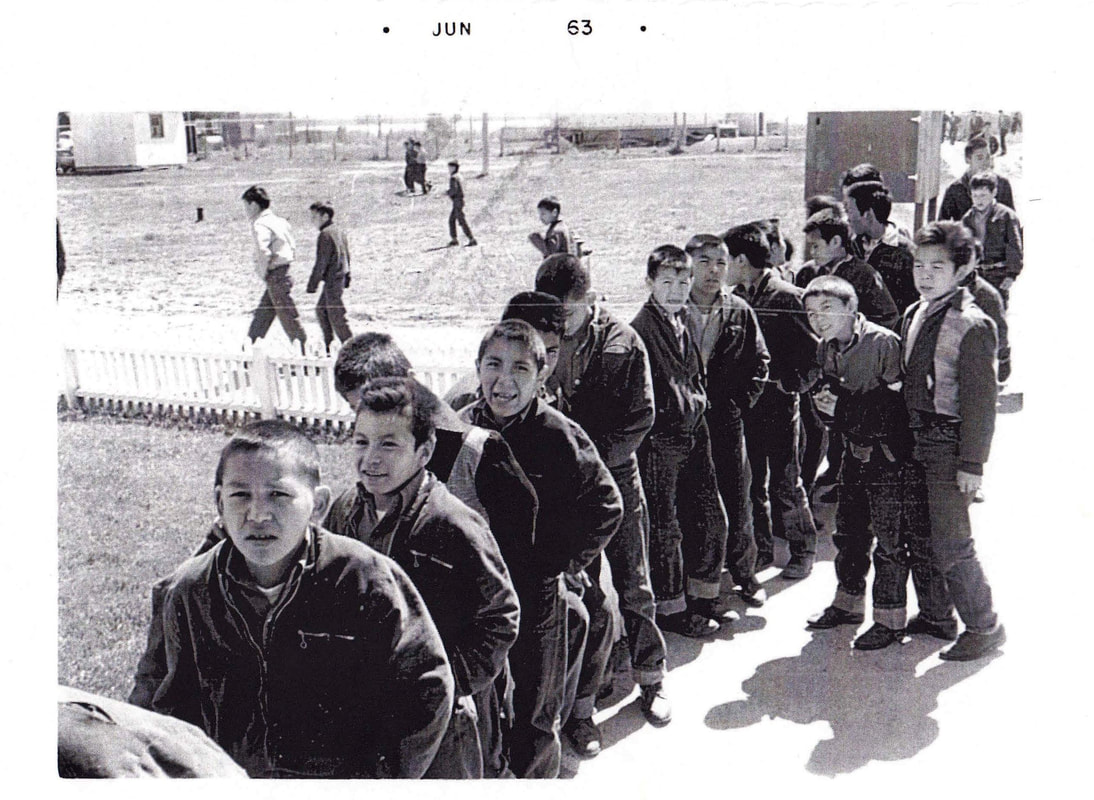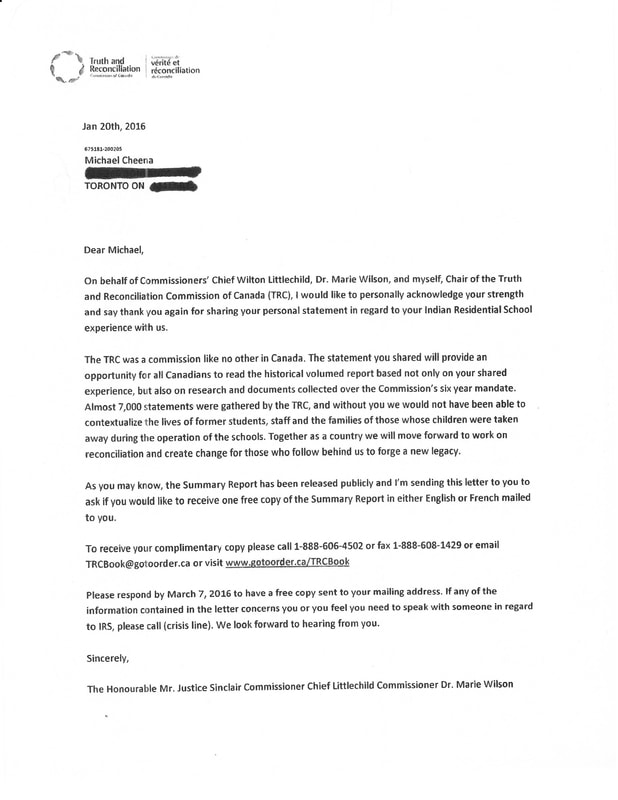- In Jesus' Name - The Documentary
- Distribution of the Film
- Starting Our Journey Together
- Surviving St. Anne's IRS
- Survivors' Stories
- Healing & a Return to Traditional Ways
- Book a Community Screening
- The issues & Legal Documents
- Painful, Shocking & Nauseating Treatment
- The Politics of Survival
- Photos from Our Journeys
- Stock Images (Canada ONLY)
- Media Coverage
- Resources
- Director's Blog
- Contact
Book a Community or Educational Screening
"Educators who wish students to learn and understand the devastating generational impact of the residential schools on the lives of Indigenous peoples in Canada, need to screen the film In Jesus’ Name in their classrooms. The film moves the story of the residential schools from a place in history to the present with force and compassion."
Cheryl Shook, Assistant Principal and Registrar, Woodsworth College, University of Toronto
Cheryl Shook, Assistant Principal and Registrar, Woodsworth College, University of Toronto
If you are interested in booking a community or educational screening of this film, and wish to have Susan Enberg and/or Evelyn Korkmaz, Mike Metatawabin, or Viv Marie Timmins present, please send your request to Susan Enberg at: [email protected] To book Edmund Metatawabin, please contact him directly at the email address provided within his profile below.
We are very open to participating in Zoom sessions with students and groups, and sometimes this just makes more sense as most of us don't live close to one another.
Honorariums should be offered and - if travel is required - all travel expenses should be covered in full by your group or organization.
We are very open to participating in Zoom sessions with students and groups, and sometimes this just makes more sense as most of us don't live close to one another.
Honorariums should be offered and - if travel is required - all travel expenses should be covered in full by your group or organization.
Susan G. Enberg, Director (Toronto, Ontario)
"Director Sue Enberg has to be given much praise in putting this documentary together and getting the survivors of St. Anne’s to speak of the horrors because these types of practices at any level should not occur again. Having a conversation isn’t enough, action must be taken which is why In Jesus’ Name is very moving."
FERN TV Review, October 2017
Susan G. Enberg is a documentary director, producer, editor and photographer, living in Toronto, Ontario. She firmly believes in uncovering dark histories that are often not shared publicly so that communities may then lobby for change.
In Jesus' Name: Shattering the Silence of St. Anne's Residential School was her first documentary film. Since then, she has directed and co-produced The Art of Reconciliation (rights held by the Toronto District School Board), Art and Status in Society, and Building a Sweat Lodge in Atikokan. Susan is currently completing a documentary film, Fight Like a Woman, about a single mother's journey of empowerment through Muaythai.
In 2014, Susan earned an Honours Bachelor of Arts from the University of Toronto, where she majored in (International) Peace, Conflict and Justice Studies. In 2017, Susan earned a Master of Fine Arts degree in Documentary Media from Ryerson University. She is a long-time human rights advocate and believes that revealing hard truths can compel positive change. Susan's writings have also been published many times. Please send requests for film screenings and/or public speaking to: [email protected]
In Jesus' Name: Shattering the Silence of St. Anne's Residential School was her first documentary film. Since then, she has directed and co-produced The Art of Reconciliation (rights held by the Toronto District School Board), Art and Status in Society, and Building a Sweat Lodge in Atikokan. Susan is currently completing a documentary film, Fight Like a Woman, about a single mother's journey of empowerment through Muaythai.
In 2014, Susan earned an Honours Bachelor of Arts from the University of Toronto, where she majored in (International) Peace, Conflict and Justice Studies. In 2017, Susan earned a Master of Fine Arts degree in Documentary Media from Ryerson University. She is a long-time human rights advocate and believes that revealing hard truths can compel positive change. Susan's writings have also been published many times. Please send requests for film screenings and/or public speaking to: [email protected]
Dr. Edmund Metatawabin (Fort Albany First Nation, Ontario)
"In Jesus’ Name was the catalyst for the most honest, compassionate, and profound sharing that has occurred in my class to date and transformed the students’ understanding of Canada’s history and themselves. "
Victoria Freeman, author, activist and instructor at the University of Toronto and York University
Victoria Freeman, author, activist and instructor at the University of Toronto and York University
I was brought into the world by four senior women of the village; my grandmothers. That piece of knowledge has always been significant for me. It carries me through many obstacles I face, knowing that I am on this world for a reason.
It is true that one of the effects of residential school incarceration, at a formative age, is that it minimizes an adjusted adulthood. There are many ingredients that can be ingested to bring back those feelings we had during childhood; self-loathing, isolation and feelings of inadequacy that prevents the survivor from moving forward.
As we recover the drum, the sweat-lodge, shaking-tent and ancestry feast ceremonies (to name a few) as well as sing our songs and dance the many expressions of honour, we recover a lost pride in ourselves. It has been a slow climb back. Our confidence and hope is on the rebound. As we become aware that bad things still happen to many other tribes; black, white, yellow and red, we can focus on the resilience of humanity. Now let’s all create wonderful things; books, plays, movies, art.
Today I take youth on a three-hundred kilometre Rafting Excursion to fight the effects of Nature Deficit Syndrome. As the Ipod batteries run out the youth begin to hear, see and feel the varied expressions of the natural environment. Management of a large raft, measuring 60 feet by 16 feet, has many teachings. You have to be aware of the river current, identify the shallow areas, anticipate rapids and work with the wind. This need for constant vigilance makes everyone move all the time and that’s good for the physical health.
I used to ask students how far back Mushkegowuk history goes. Their answers were in the hundreds and echoed the history texts in front of them. Not too many said that we have been on this land for several millennia. As the legends, oral stories and area land marks come to their attention, they realize our people have been on Turtle Island for thousands and thousands of years. As we uncover a landmark and express our curiosity, the elders have begun to fill in the blanks. The reason why it was hidden is a story in itself, a story to be told at a later time.
Our stories need to come out. We can help each other realize that experience, no matter how difficult, can be a teacher. I will advise youth (of all Nations) to speak to their old people and uncover their past – from those that lived it. You will have your story and the elder receives companionship and attention from you. For them that is a priceless exchange.
I'm a former Chief of Fort Albany First Nation, a Cree community on the shores of James Bay in Ontario, Canada. I'm a writer, educator, poet and activist. As a residential school survivor, I assisted the founding of the The Peetabeck Keway Keykaywin Association (PKKA) shortly after the first reunion of the residential school in 1991 as a way to assist fellow survivors navigate the trauma they had suffered and be part of a larger voice. I own a sawmill and also work as a consultant, speaker and researcher.
To place a request for Edmund as a public speaker, you can email him directly at: [email protected]
Evelyn Korkmaz (Ottawa, Ontario)
"Giving as much space as possible to the survivors and their trauma, the film is respectful, informative, and straightforward. Enberg allows their voices to take precedence, never bogging them down with cinematic gimmicks or a need for an auteurist flair: she may be the director, but it is the film of the survivors."
Chelsea Phillips Carr, Scene Creek
Evelyn Korkmaz is a Mushkegowuk Cree and a survivor of the notoriously violent St. Anne’s Residential School that was operated by the Catholic Church, in her community of Fort Albany First Nation from 1903 to 1976. Evelyn aspires to bring Canada’s previously hidden dark Indigenous history to the forefront of all Canadians. She seeks to break the long-held silences of horrific abuses against Indigenous children who were removed from their families and forced to reside in federally mandated residential schools. Through film screenings and public speaking, Evelyn brings her direct knowledge and lived experiences, of the horrors and fears suffered under the federal residential school policy. She provides valuable insights during this era of Government promises for ‘truth and reconciliation’.
Evelyn is a founding member of Ending Clergy Abuse (ECA), an international organization started in 2018 with members from about 28 countries. She has participated in taking significant steps to lobby the Vatican to end sexual abuse of children by church officials and to hold those accountable who know about abuse but engage in cover up. Evelyn is also a founding member of Advocates for Clergy Trauma Survivors in Canada (ACTS), a multi-partisan coalition of indigenous and non-indigenous advocates from coast-to-coast whose goal is to ensure that those who have experienced harm within religious institutions find justice and peace.
In 2018, 2019 and 2020, Evelyn attended and presented at the United Nations in Geneva, Switzerland and testified several times before the UN Committee on Human Rights, the UN Committee on Rights of the Child and the UN Committee Against Torture. She testified on behalf of all Indigenous Canadians who are survivors of sexual abuse in the church-run residential schools and survivors of child torture. Evelyn explained to the UN and to the international media that all Indigenous children in Canada were forced under federal law to attend these Christian-church operated residential schools, and that there was terrible abuse of the children under the guarding-ship of the Canadian government and the Oblates missionaries. In Geneva, in 2020, Evelyn also made a presentation to the World Organization Against Torture (OMCT), and shared her personal story of sexual abuse and torture. Evelyn continues to advocate for Indigenous residential school survivors, so that survivors will never be forgotten.
To book Evelyn for a film screening and/or public speaking, email: [email protected]
Vivian Timmins (Etobicoke, Ontario)
"Thoroughly researched, Enberg’s In Jesus’ Name offers an unblinking set of revelations of bestiality and abuse while asking its viewers to take direct action against those who committed the crimes against Indigenous youth."
POV Magazine, Anastasia Akulinina
Vivian Timmins is O'Mushkego Cree and she calls Fort Albany, Ontario, her homeland. She is Eagle Clan and a band member of Constance lake First Nation. Among her accomplishments, Vivian is an author and has earned Bachelor and Master of Social Work degrees. Vivian is a registered Social Worker.
Vivian is also an educator, and delivers Indigenous Cultural Awareness training to introduce basic concepts of cultural awareness, Indigenous history and Indigenous views on the missing years of Canadian history. Her workshop also connects issues of violence against Indigenous women and girls, racism, cultural appropriation, and illuminates the differences between western healing and Indigenous holistic healing. She shares her knowledge to provide additional understanding of current issues facing Indigenous communities through her lens so as to help her audience understand the terminology of diversity, cultural appropriation, cultural sensitivity, and cultural awareness.
Vivian is an International speaker, an oral Indigenous historian who focuses on the Indian residential school era. She continues to discuss these hard topics to create an understanding of aspects of past, present and future, and to share her insights of the Indian Residential Schools as well as the intergenerational impact and effects. Viv engages the audience in a meaningful way by sharing her painful lived experiences as a young child while in the Indian Residential Schools.
Each time Vivian shares her story, she is known to speak her truth, and while doing so, she emanates the power of resiliency, strength and bravery. She continues her life journey, determined to break the negative legacy of Indian Residential Schools for her family: her three children, her five grandchildren and for the many generations to come. Despite past hardships and heartaches, Vivian strives for the future with a positive outlook.
If you wish to book Vivian Timmins for a public speaking event, please contact Susan Enberg at: [email protected]
Vivian is also an educator, and delivers Indigenous Cultural Awareness training to introduce basic concepts of cultural awareness, Indigenous history and Indigenous views on the missing years of Canadian history. Her workshop also connects issues of violence against Indigenous women and girls, racism, cultural appropriation, and illuminates the differences between western healing and Indigenous holistic healing. She shares her knowledge to provide additional understanding of current issues facing Indigenous communities through her lens so as to help her audience understand the terminology of diversity, cultural appropriation, cultural sensitivity, and cultural awareness.
Vivian is an International speaker, an oral Indigenous historian who focuses on the Indian residential school era. She continues to discuss these hard topics to create an understanding of aspects of past, present and future, and to share her insights of the Indian Residential Schools as well as the intergenerational impact and effects. Viv engages the audience in a meaningful way by sharing her painful lived experiences as a young child while in the Indian Residential Schools.
Each time Vivian shares her story, she is known to speak her truth, and while doing so, she emanates the power of resiliency, strength and bravery. She continues her life journey, determined to break the negative legacy of Indian Residential Schools for her family: her three children, her five grandchildren and for the many generations to come. Despite past hardships and heartaches, Vivian strives for the future with a positive outlook.
If you wish to book Vivian Timmins for a public speaking event, please contact Susan Enberg at: [email protected]
Mike Metatawabin (Timmins, Ontario)
Mike Metatawabin was born and raised in the First Nation community of Fort Albany located along the shores of western James Bay.
He is a proud father of two boys and two daughters, with five grandchildren, and is married to his wife Eva. Mike is a survivor of the St. Anne’s residential school which was located right in their community. It is now known as one of the more notorious schools of its time.
Mike comes from a family that has always been passionate in providing leadership and advocacy for the community members in general. His father and three brothers before him were elected to serve as Chief for their community.
He was elected as Chief of Fort Albany back in 1998 and served four consecutive terms until 2006. Mike’s heart is a truly that of a humanitarian. Three most notable accomplishments worth mentioning during his term, and shortly after being newly elected, were: the removal of the Third-Party Manager within six months, the construction of a new school and the grand opening of a transmission line to connect three communities. The new place of learning facility provided an opportunity for the community to begin a new chapter in their journey together to get away from the dreadful past and effects of the national residential school policy.
Mike was also appointed to serve as President for Wawatay Communications Society back in June 1998, a position he continues to hold today. In subsequent years, he was appointed as Board Chair for Nishnawbe Aski Police Services, Chairperson for the Aboriginal Peoples Television Network, and President for Five Nations Energy Inc.
During his term as board chair, Mike was successful in working with his colleagues in pushing to make an amendment to the Ontario Police Services Act that would bring the Nishnawbe Aski Police services recognition under provincial rule of law.
In 2009, he was elected as Deputy Grand Chief for Nishnawbe Aski Nation, a position that provided an opportunity to address the opioid addictions epidemic which sadly, is still ongoing today with our communities in Northern Ontario.
Mike is also respectfully recognized for his role in working as an Indigenous language broadcaster for both Wawatay radio and television serving 35 remote communities in Northern Ontario.
Working in these various capacities have led Mike Metatawabin to develop and maintain a strong relationship with all the different levels of government agencies, locally, regionally, provincially and at the federal level. He is people driven to make a difference through organizations that provide frontline services to the communities. This has led him to develop a close connection to people of Northern Ontario and has allowed him to continue his work as an advocate for the people. His jovial demeanour allows him to connect well with others.
Throughout these dedicated years of service, Mike began to turn his attention toward addressing the dark legacies of his heritage by writing memoirs and poetry. Work is currently in progress to have these projects published.
Mike Metatawabin currently works with Five Nations Energy as the Manager for External Development and Communications.
If you wish to book Mike Metatawabin as a public speaker, please make your request by emailing Susan Enberg at: [email protected]
Michael Cheena (Toronto, Ontario)
Note: Michael Cheena attended both Spanish Residential School and Shingwauk Residential School in northern Ontario.
Michael is proud to be First Nation with Cree ancestry from James Bay and he moved to Toronto in 1975. He has held several leading roles in the native community of Toronto that consisted of being Vice-President of AKEC (First Nations School of Toronto) and President of Toronto Council Fire Native Cultural Centre Board of Directors. He has been a research consultant for (NAN) First Nations Band Offices and sat on the Ontario Joint Aboriginal Anti-Racism Committee. He is the former President and Indigenous Representative of the Aboriginal Urban Alliance of Ontario. As a survivor of two residential schools, he has travelled to the Truth and Reconciliation Commission Statement Gatherings and hearings to share his residential school experience with non-Indigenous Canadians.
Michael received the Commemorative Medal for the 125th Anniversary of the Confederation of Canada in recognition of voluntary service in 1993. Michael has worked at Na-Me-Res providing direct relief to persons in crisis. He served as Union Steward and President of Local 3950 while employed at Temple Wire Products Ltd. He is currently a Peer Advocacy Worker for Indian Residential School Survivors at the Toronto Council Fire Native Cultural Centre. Michael’s studies at Humber College and George Brown College have assisted him on his journey of healing and throughout his many tasks.
If you wish to book Michael Cheena as a public speaker, please make your request by emailing Susan Enberg at: [email protected]
Michael received the Commemorative Medal for the 125th Anniversary of the Confederation of Canada in recognition of voluntary service in 1993. Michael has worked at Na-Me-Res providing direct relief to persons in crisis. He served as Union Steward and President of Local 3950 while employed at Temple Wire Products Ltd. He is currently a Peer Advocacy Worker for Indian Residential School Survivors at the Toronto Council Fire Native Cultural Centre. Michael’s studies at Humber College and George Brown College have assisted him on his journey of healing and throughout his many tasks.
If you wish to book Michael Cheena as a public speaker, please make your request by emailing Susan Enberg at: [email protected]
Proudly powered by Weebly
- In Jesus' Name - The Documentary
- Distribution of the Film
- Starting Our Journey Together
- Surviving St. Anne's IRS
- Survivors' Stories
- Healing & a Return to Traditional Ways
- Book a Community Screening
- The issues & Legal Documents
- Painful, Shocking & Nauseating Treatment
- The Politics of Survival
- Photos from Our Journeys
- Stock Images (Canada ONLY)
- Media Coverage
- Resources
- Director's Blog
- Contact
